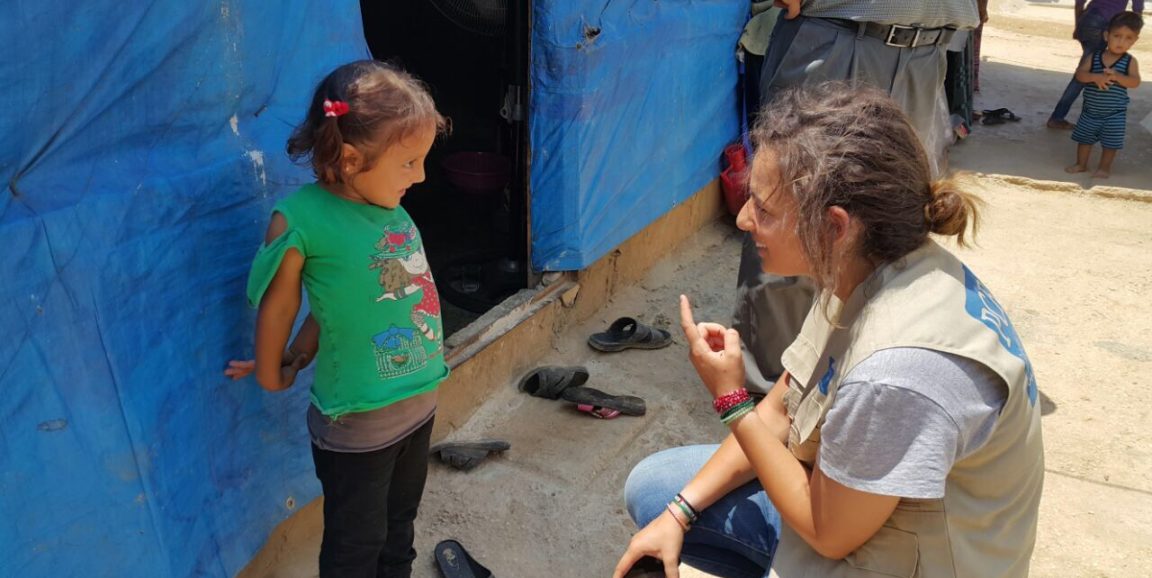A Syrian refugee mother called me sobbing yesterday, unable to tell her children that they will no longer resettle in the U.S. Amid harrowing, desperate tears, she sought guidance from me on how to tell her 5-year-old child that their case has been suspended as a direct result of the travel ban, now upheld by the Supreme Court, forbidding entry to the U.S. for Syrians and other individuals from some Muslim-majority countries (as well as Venezuela and North Korea). Before I was able to console the mother, her child grabbed his mother’s phone and said to me, “We are packed! We are ready to go! I know what I’m going to tell all the kids in my school in America. I’m going to say ‘salam.’ I’m going to teach them how to say ‘peace’ in Arabic. Good idea?”
Last week, we celebrated World Refugee Day, a day meant to commemorate the unimaginable resilience and strength of millions of refugees around the world. New statistics released by UN Refugee Agency last week indicate displacement numbers are at an all-time high. Today, there are more than 68.5 million displaced individuals worldwide with more than 16 million becoming displaced in 2017 alone.
Truth is, our nation’s policies have incontrovertibly failed refugees and vulnerable groups needing to flee to the U.S. for safety and security. Just this week, our nation’s highest court upheld a decision to shut down its borders to individuals fleeing the country contributing the largest number of refugees globally — Syria — forcing them to either flee to nearby countries who are at capacity or forcing them to remain inside Syria, exposed to grueling war. Just this week, our nation bore witness to harmful policies separating children from their parents on our borders, allowing them to reunite only if they willingly sign documents for their deportation back to their countries.
In the U.S. today, these harmful policies single out for unfair punishment only the most vulnerable groups. Those of us working in global displacement know no one leaves their country unless there is no other choice. No one makes the treacherous journey until they have exhausted all other options. No one willingly puts their children’s lives in danger.
Those of us working specifically with Syrian refugees know resettlement to the U.S. has always been an avenue of last resort. With less than 1 percent of refugees globally being resettled, only the most vulnerable could try to be in that minute percentage. Those with debilitating, chronic health conditions needing specialist care could try to petition for vulnerability status and attempt to be one of the lucky few who make it to the U.S. Now, in the case of the Syrian refugee mother who called and once met criteria for resettlement, being denied entry from the U.S. means not having access to adequate mental health services for her other child who has low-functioning autism.
I will soon depart on a trip to Lebanon and Jordan, where I had hoped to make it possible for some Syrian college students to come to the U.S. Now, that isn't possible and I will have to say instead, as I told the Syrian mother, "I see you. I am with you."
Laila Soudi is the project lead for the Stanford Refugee Research Project. Originally from Syria, Laila has been working with refugee populations across Europe and the Middle East.
Photo of Laila Soudi and a refugee child in Lebanon courtesy of Laila Soudi




